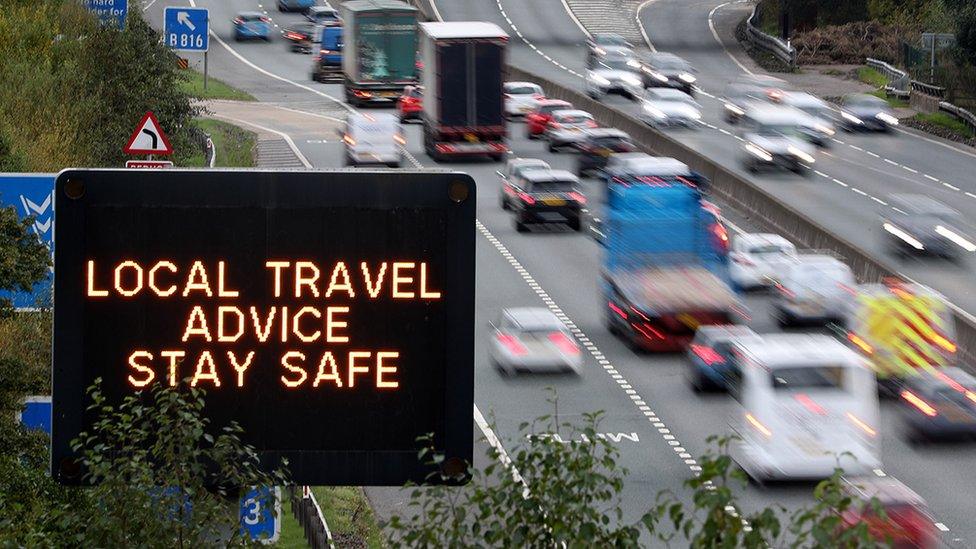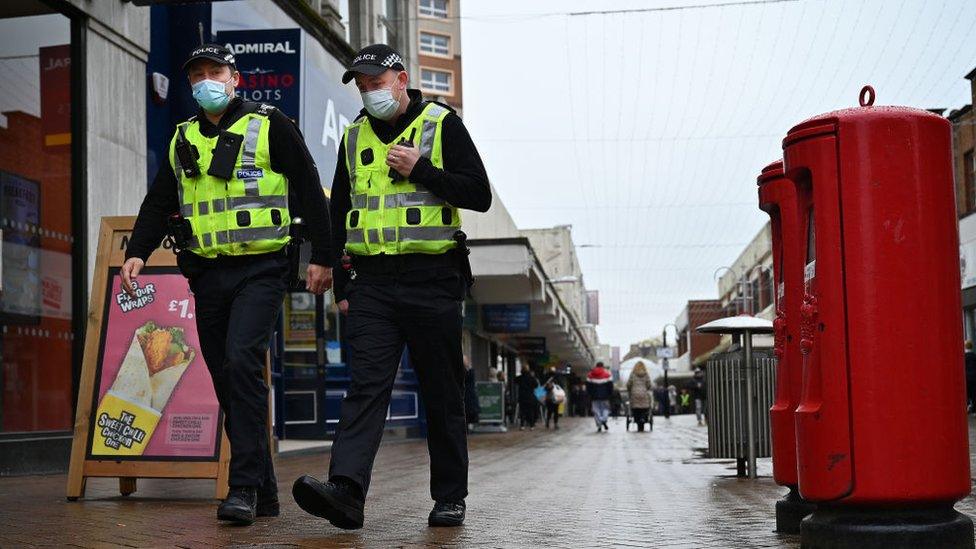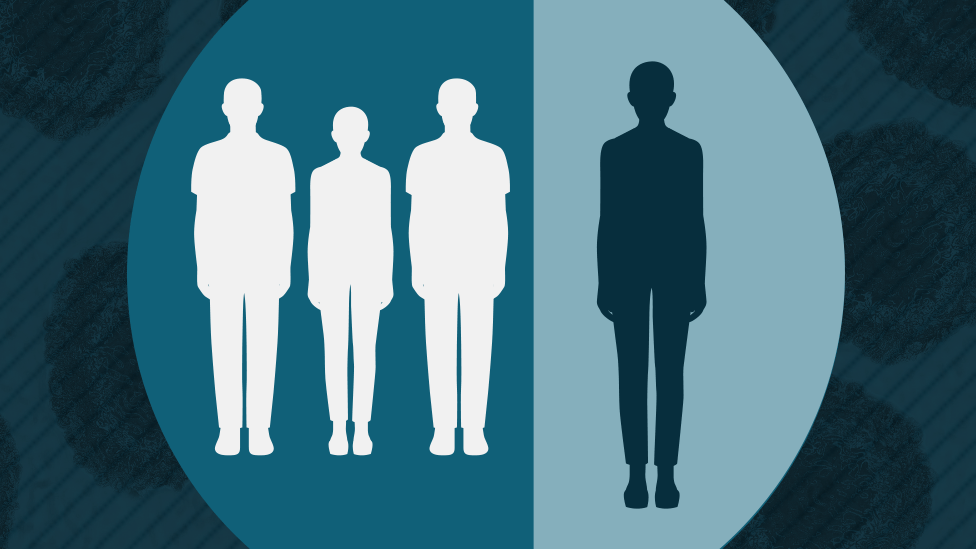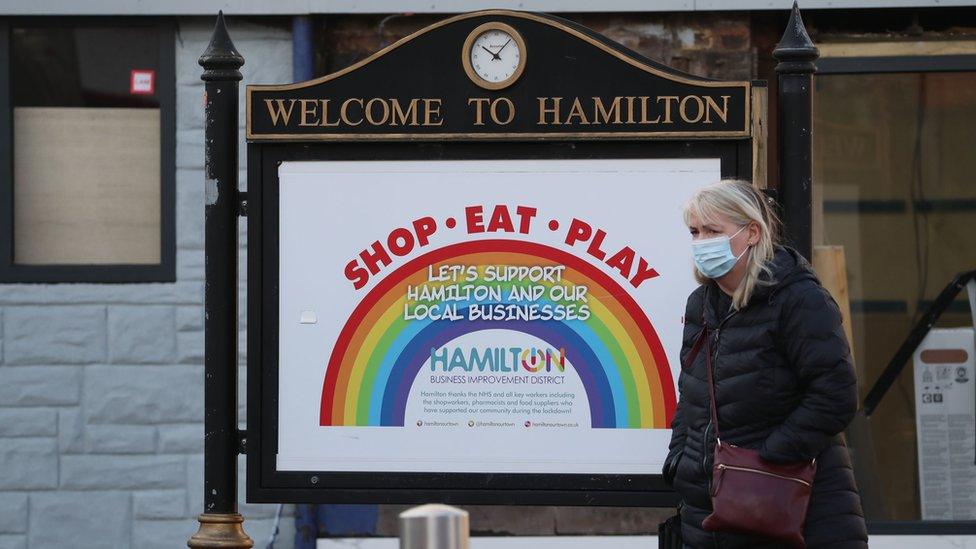Covid in Scotland: Sturgeon 'actively considering' travel ban in law
- Published
- comments
Nicola Sturgeon said a system of travel fines could be introduced if restrictions on movement are put into law
The Scottish government is "actively considering" putting a travel ban into law with fines for those who travel in and out of Covid-19 hotspots.
First Minister Nicola Sturgeon said limiting travel was "absolutely essential" in containing the virus.
The current advice on not moving in or out of Level 3 areas is not put down in law and cannot be enforced.
However, this could change when rules are reviewed next week, with the country in a "very fragile" position.
A further 50 deaths were registered on Wednesday, alongside 1,433 new cases of coronavirus.
A new five-level system of restrictions is now in force across Scotland, with different measures in place in different parts of the country.
The government is currently advising people not to travel in or out of council areas in Level 3 - which covers much of the central belt - unless essential.
When the latest rules were announced, Ms Sturgeon said this was because "police can't check everyone's journey", adding that "this has to rely on public willingness to adhere".
She warned that if people refused to abide by the rules, Scotland could return to nation-wide restrictions - potentially at the highest level.
And the first minister has now said she is "actively considering whether we give a legal underpinning" to the advice.

People under Level 3 restrictions are urged not to make non-essential journeys outside their council areas
Ms Sturgeon said travel restrictions were "an absolutely essential part of the sustainability of a varied approach across different localities".
She said: "Unfortunately, the wider you make people's ability to travel, the greater the risk you have of taking the virus from high to low prevalence areas, and that is what we must guard against."
An update is expected when the alert levels for each area are reviewed on Tuesday, 10 November.
Ms Sturgeon said she had not taken a "final decision" and did not want to "rule anything in or out".
However, she said the move would not be "an inappropriate overreach of the state", but a move which was "about keeping people safe".
She said: "I think we all recognise that when something is put in law, most people realise - more than they do when its guidance - that it's important.
"And it does give the police the ability if they have evidence that people are flagrantly breaching the law to take action there, where that is appropriate."
The first minister said the current fixed penalty framework - starting at £60 - would be the likely "starting point" for any enforcement.
How many cases in my area?



- Published19 November 2020

- Published13 January 2023

- Published10 November 2020
